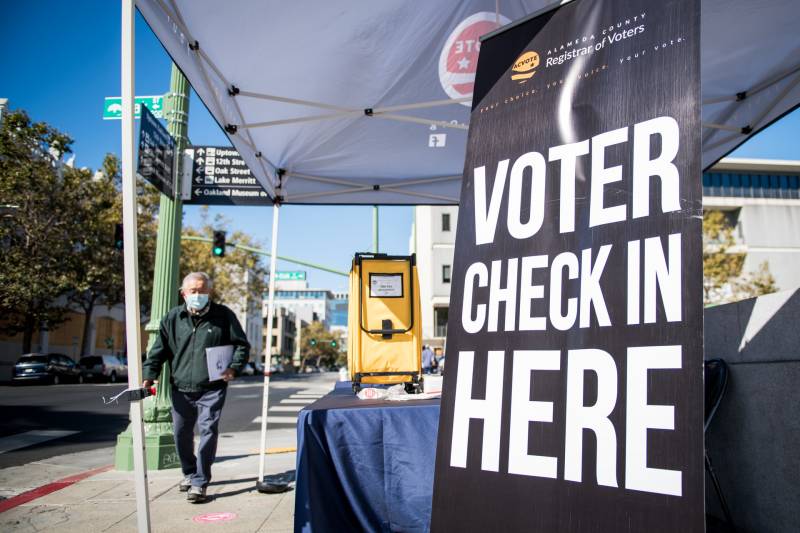The election issues first cropped up when voting began in October. The county was late in setting up the majority of the 60 drop boxes it used to collect mail ballots, citing a delay from a vendor.
Voting rights advocates have been especially critical of the county’s failure to meet language access requirements for limited English proficient voters. By law, voting sites must display sample ballots in locally prevalent languages.
A 2014 estimate from The Greenlining Insitute found that Alameda County has more than 117,000 limited-English proficient citizens of voting age. Similar language access failures in the past have landed the county under consent decrees with the U.S. Department of Justice.
Attorneys for the ACLU and Asian Americans Advancing Justice — Asian Law Caucus said that many voting sites in Alameda County did not post such sample ballots, known as facsimile ballots, or make them available in looseleaf form. And poll workers at some sites did not know about the sample ballot requirements, the attorneys say.
Dupuis said the county’s switch to countywide voting, in which voters can cast their ballot at any location rather than being assigned to a specific polling place, made the printing requirement “not practical.”
“We would have had to print out at least 10,000 facsimile ballots for all 100 of our locations, which would be confusing to our voters [and] would also be difficult to manage,” he said.
Advocates countered that the county could have at least posted a sample ballot for each language, which they only did after prodding from voting rights lawyers, or set up a designated area in the voting location with sample ballot information.
The registrar’s process for training poll workers was also questioned, specifically in an incident that voting rights advocates said led to the disenfranchisement of more than 100 voters who left a Mills College polling place with their ballot in hand.
For more than three days, poll workers at the site mistakenly told voters that the ballots they printed from touchscreen machines were receipts.
“We don’t know precisely how that came across,” said Dupuis, who said the county was able to track down and process 35 of the estimated 160 ballots taken home by voters.
Going forward, the registrar committed to adding signage, reminding voters that the printout is their ballot, along with a prompt on the touchscreen to deposit the printed ballot into a trolley.
Poll workers at the location said they were not properly trained and that the registrar’s office was not responsive to their requests for help.
“This is unacceptable,” said Claire Calderón, one of the Mills College poll workers at the site who spoke at Tuesday’s hearing. “We were volunteers with inadequate training who reached out repeatedly for help navigating brand new systems, and we were repeatedly dismissed.”

